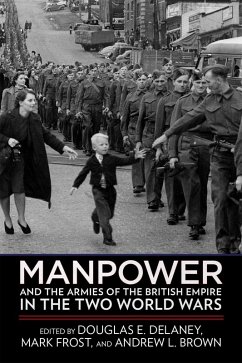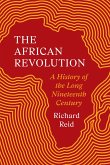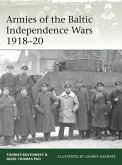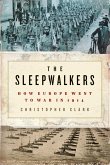In the first and only examination of how the British Empire and Commonwealth sustained its soldiers before, during, and after both world wars, a cast of leading military historians explores how the empire mobilized manpower to recruit workers, care for veterans, and transform factory workers and farmers into riflemen.
Raising armies is more than counting people, putting them in uniform, and assigning them to formations. It demands efficient measures for recruitment, registration, and assignment. It requires processes for transforming common people into soldiers and then producing officers, staffs, and commanders to lead them. It necessitates balancing the needs of the armed services with industry and agriculture. And, often overlooked but illuminated incisively here, raising armies relies on medical services for mending wounded soldiers and programs and pensions to look after them when demobilized.
Manpower and the Armies of the British Empire in the Two World Wars is a transnational look at how the empire did not always get these things right. But through trial, error, analysis, and introspection, it levied the large armies needed to prosecute both wars.
Contributors Paul R. Bartrop, Charles Booth, Jean Bou, Daniel Byers, Kent Fedorowich, Jonathan Fennell, Meghan Fitzpatrick, Richard S. Grayson, Ian McGibbon, Jessica Meyer, Emma Newlands, Kaushik Roy, Roger Sarty, Gary Sheffield, Ian van der Waag
Raising armies is more than counting people, putting them in uniform, and assigning them to formations. It demands efficient measures for recruitment, registration, and assignment. It requires processes for transforming common people into soldiers and then producing officers, staffs, and commanders to lead them. It necessitates balancing the needs of the armed services with industry and agriculture. And, often overlooked but illuminated incisively here, raising armies relies on medical services for mending wounded soldiers and programs and pensions to look after them when demobilized.
Manpower and the Armies of the British Empire in the Two World Wars is a transnational look at how the empire did not always get these things right. But through trial, error, analysis, and introspection, it levied the large armies needed to prosecute both wars.
Contributors Paul R. Bartrop, Charles Booth, Jean Bou, Daniel Byers, Kent Fedorowich, Jonathan Fennell, Meghan Fitzpatrick, Richard S. Grayson, Ian McGibbon, Jessica Meyer, Emma Newlands, Kaushik Roy, Roger Sarty, Gary Sheffield, Ian van der Waag
Dieser Download kann aus rechtlichen Gründen nur mit Rechnungsadresse in A, D ausgeliefert werden.









